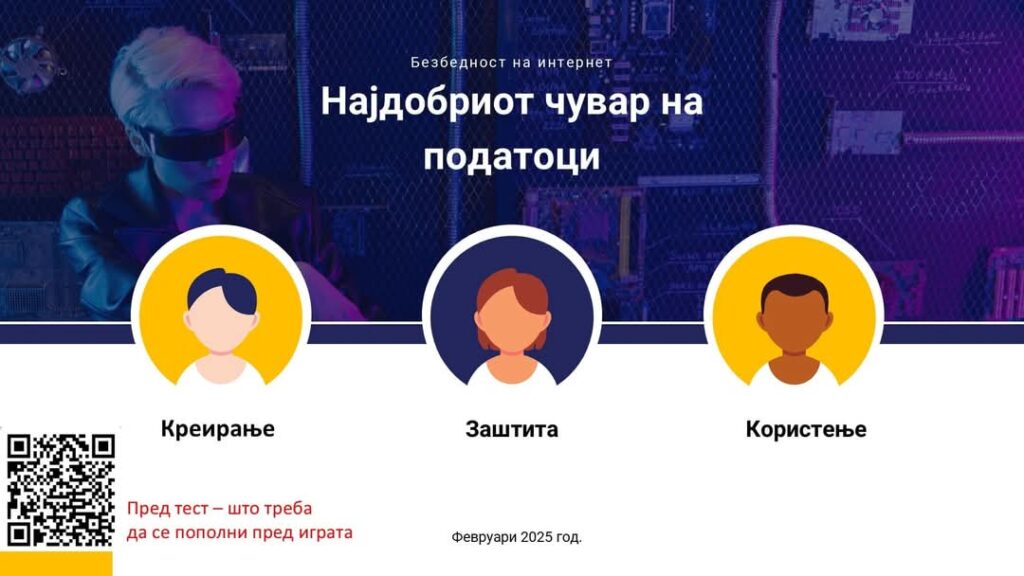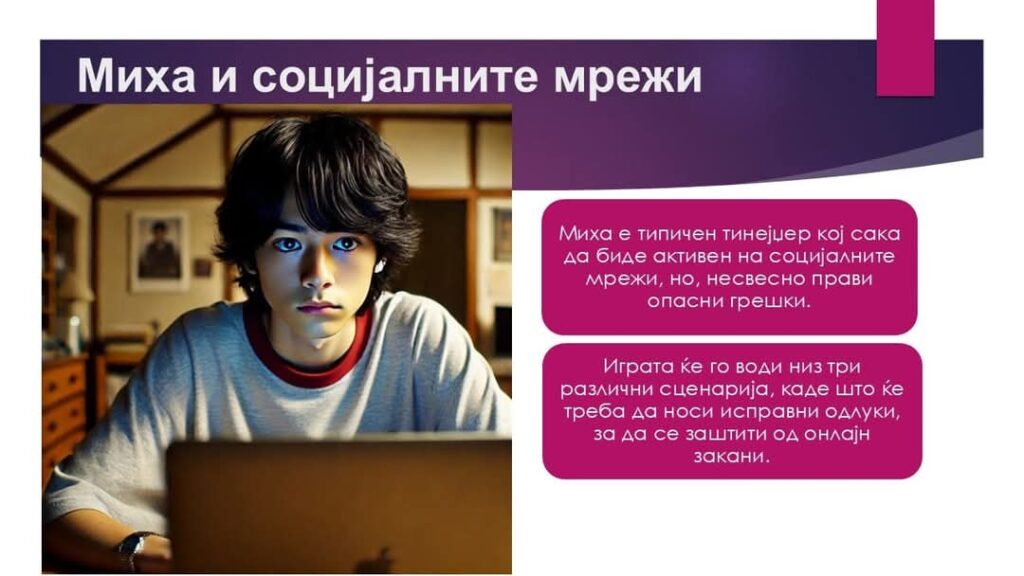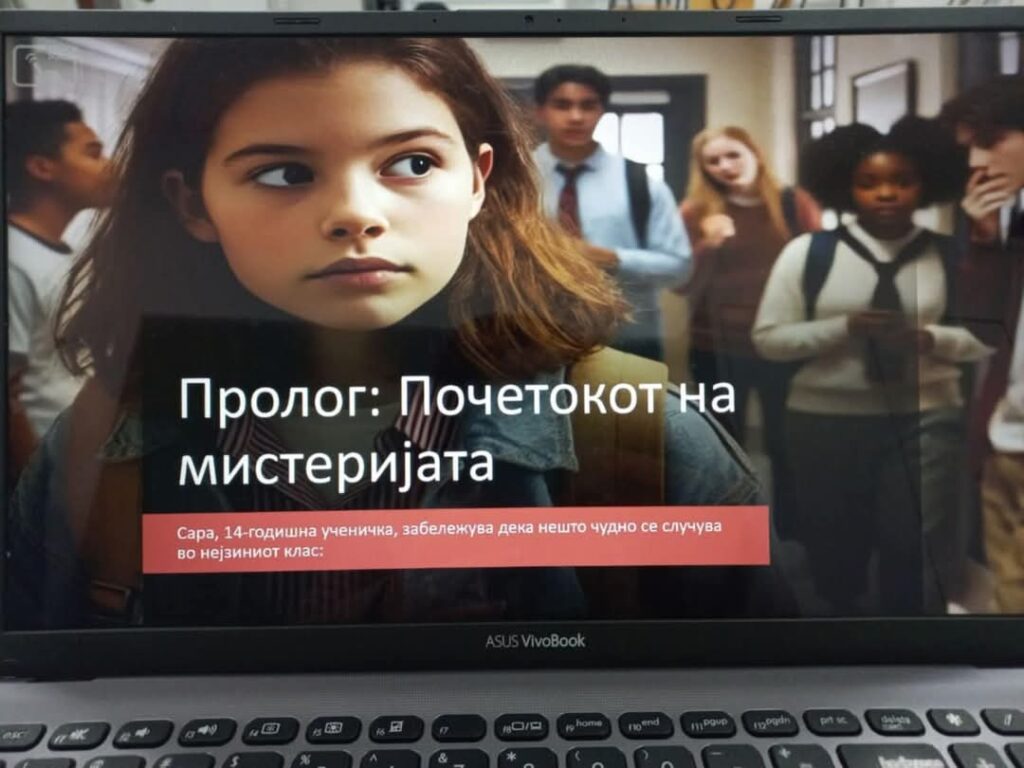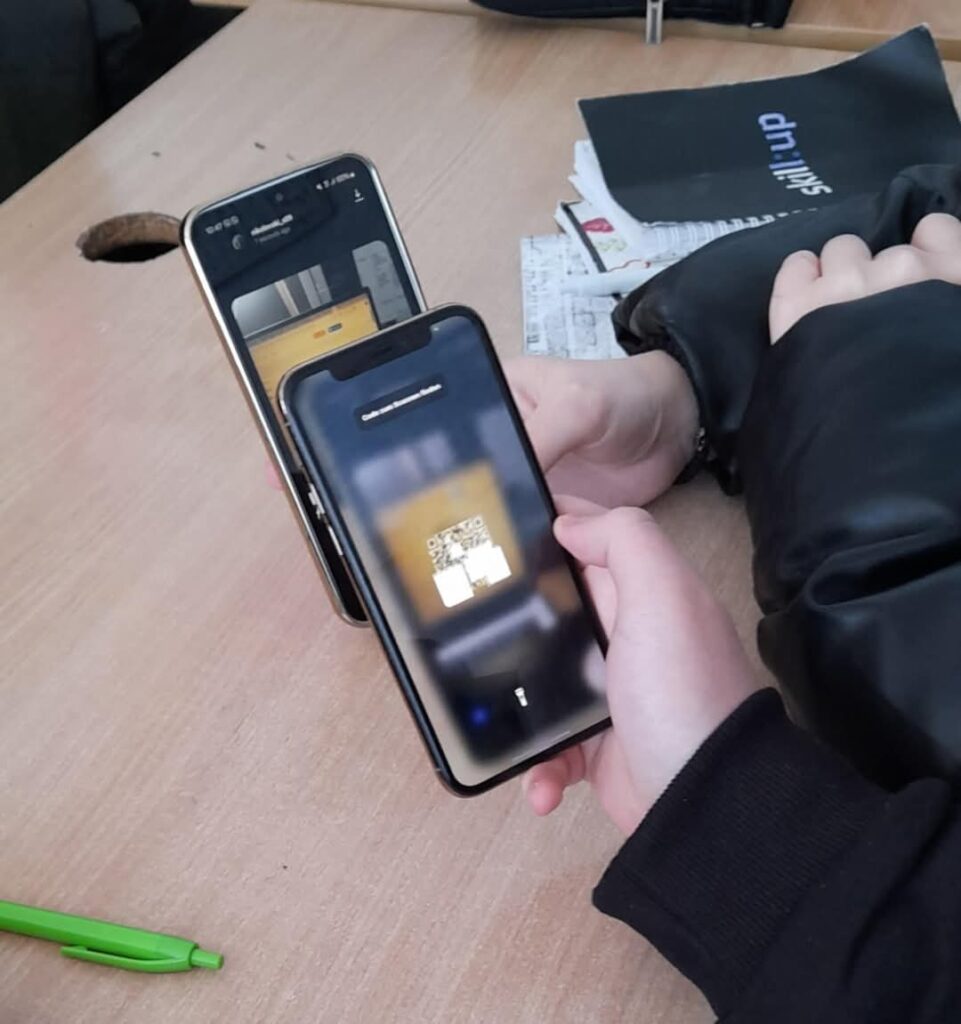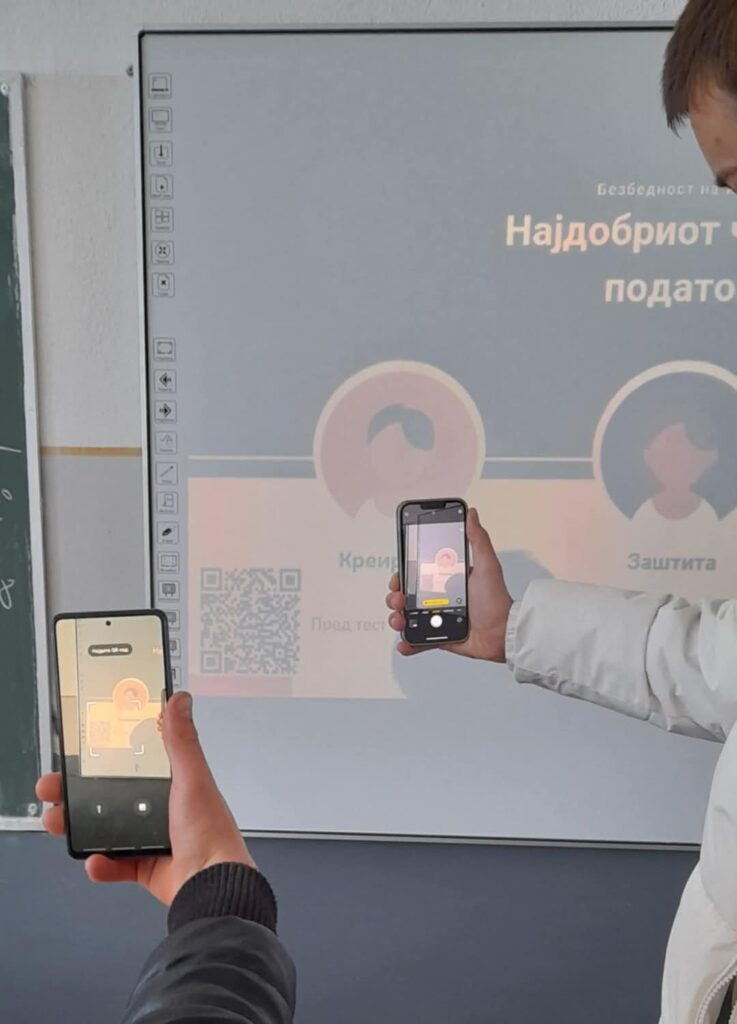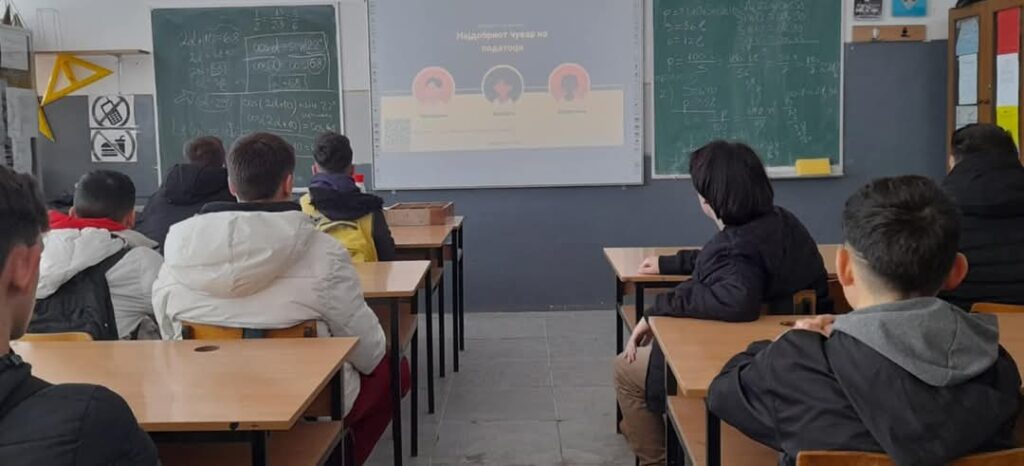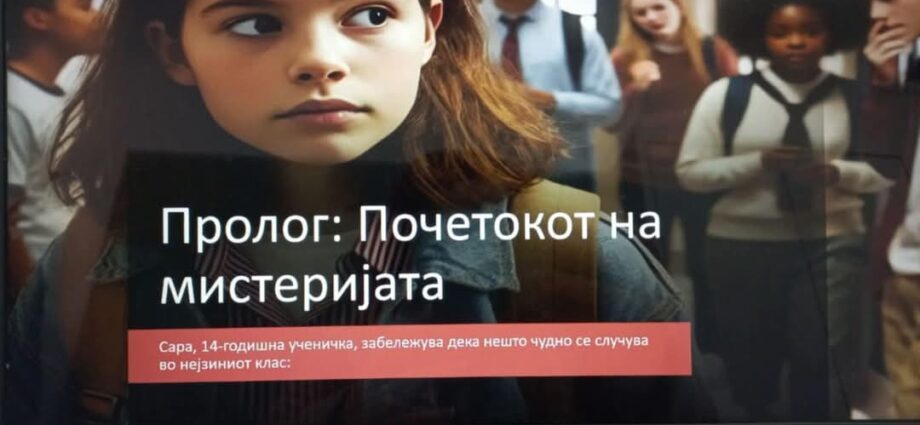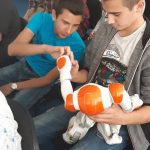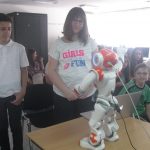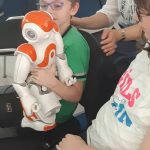On February 1, 2025, Dig-Ed organized a workshop within the framework of the project “SHIELD: Practical Learning through Game Simulation to Improve Cybersecurity Skills,” in which 40 teachers from primary and secondary schools in the Republic of North Macedonia participated. After the workshop, the teachers created game activities using the SHIELD methodology and used them to carry out activities in their schools during the celebration of Safer Internet Day.
A brief description of some of the activities carried out is as follows:
• At the Secondary Vocational School “Gjorče Petrov” in Kavadarci, a vocational high school with approximately 400 students, Internet Safety Week was celebrated with the help of Professor Gjorče Todorov. During an Informatics class with several first- and second-year students, educational videos on internet safety, cyberbullying, digital footprints, and cybercrime were shown. Afterward, the students filled out a quiz and a questionnaire related to the game. A post about the workshop was made on the school’s Facebook profile link, which was also shared by the local TV station RTK. The entire event was very interesting for the students, and they learned many things regarding internet safety.
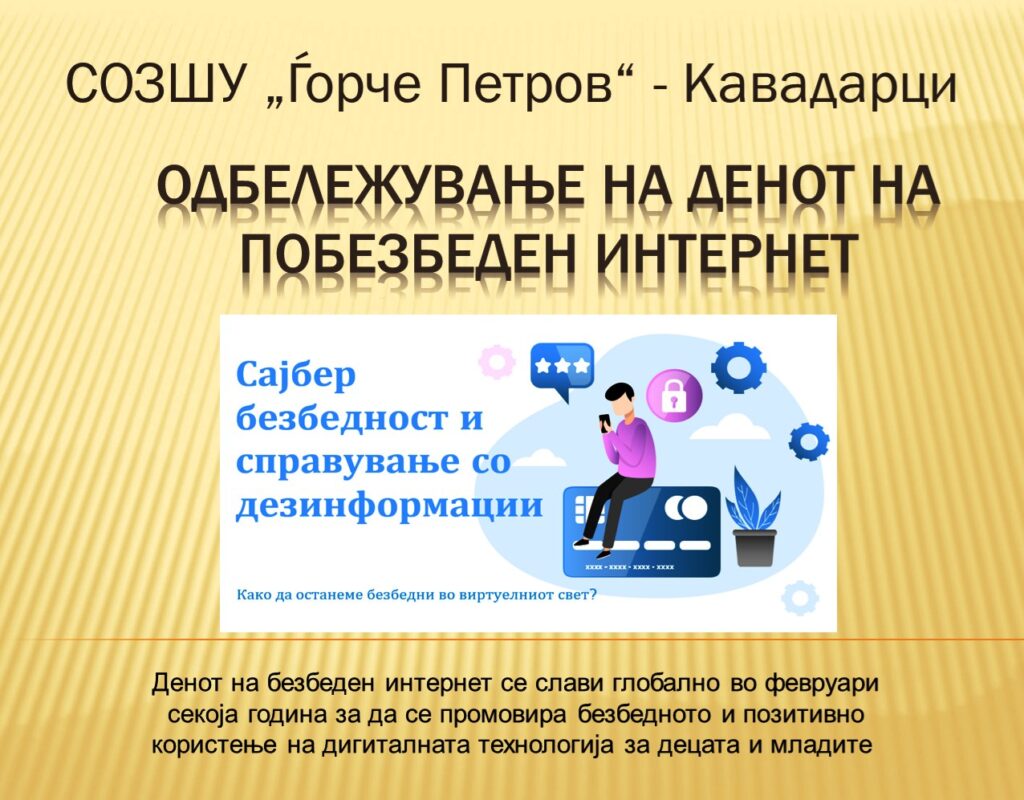
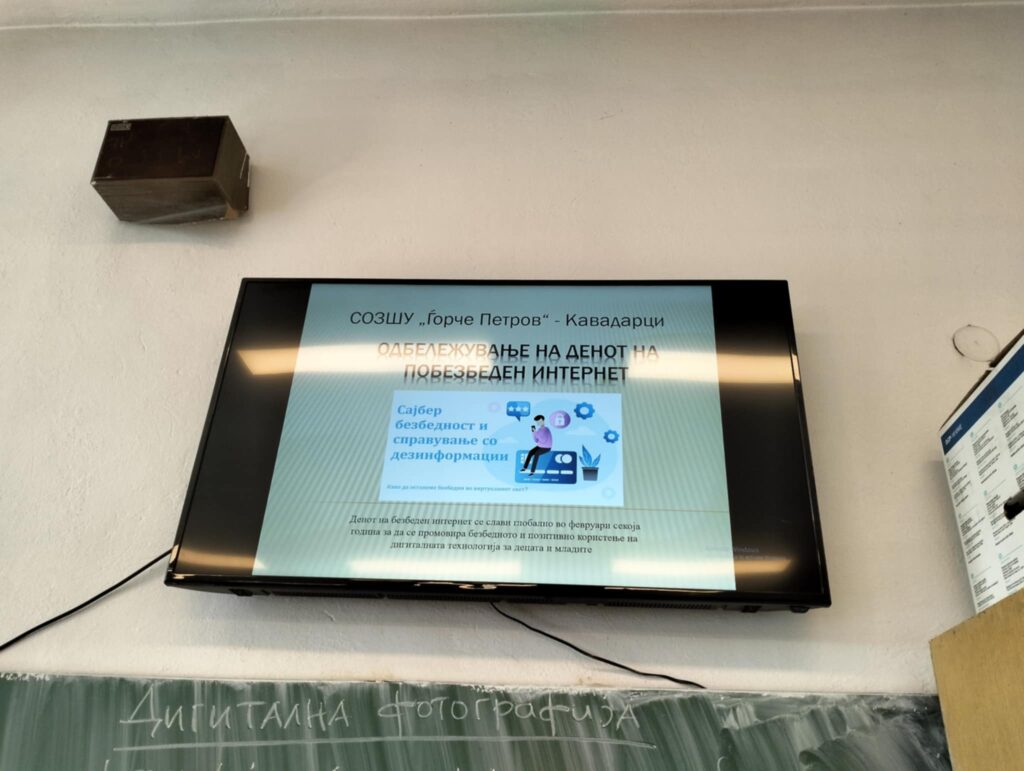
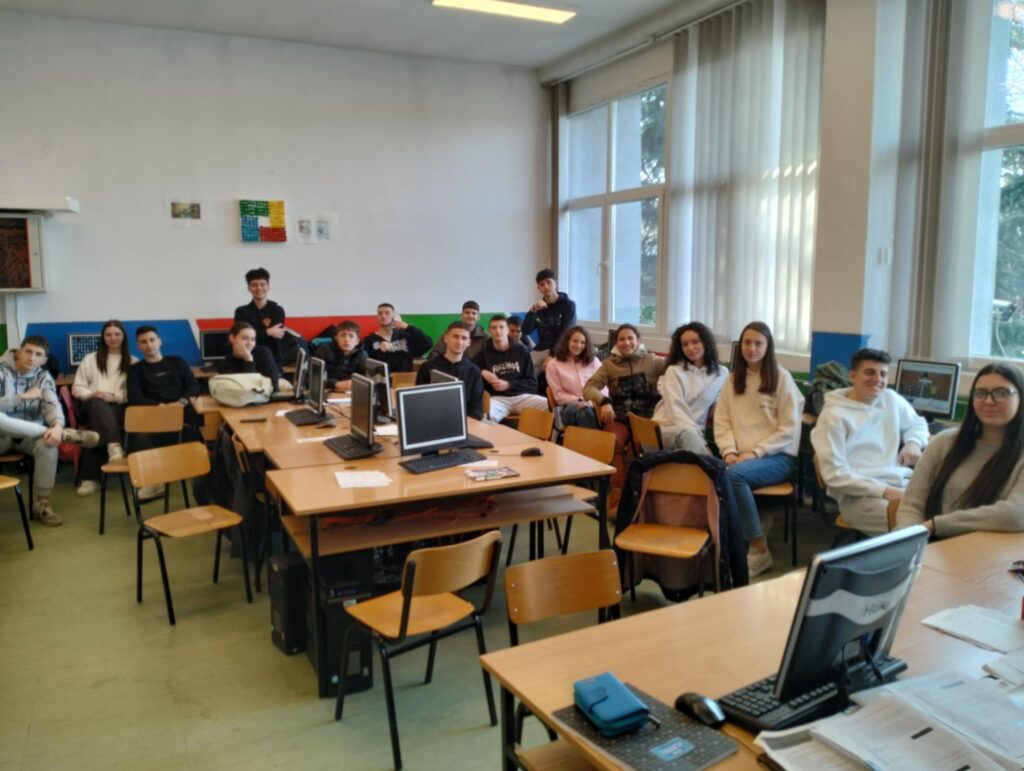
• The educational game “Unlock the Safe World” was implemented at the school OOU “Blaže Koneski” in Veles with the help of teacher Zorica Adamčevska. The game was applied with third-grade students. At the beginning of the activity, out of a total of 26 students, 17 stated that they had their own profiles (Facebook, TikTok, Instagram). The activity was carried out in 6 groups of 4-5 students each. Each group collaboratively, with a high degree of interest and cooperation, filled out a group task list, realistically and visually represented as in the game, to more easily and quickly obtain results from each challenge. Before starting the game, the students were introduced to how to earn points and the possibility of using a help card. Curiosity, enthusiasm, interest, collaboration, and the desire to win were present throughout the entire gaming process. The results were recorded publicly and transparently in front of the students, and at the end, the winning team was announced. The results revealed that the most difficult challenge for the students was “The Secret of the Strong Password” and “Recognizing Safe Links,” which indicated that educational gaming activities of this kind should be applied even for younger students. At the end of the activity, each student received a certificate and a message about what they had learned: “Now you can help others.”
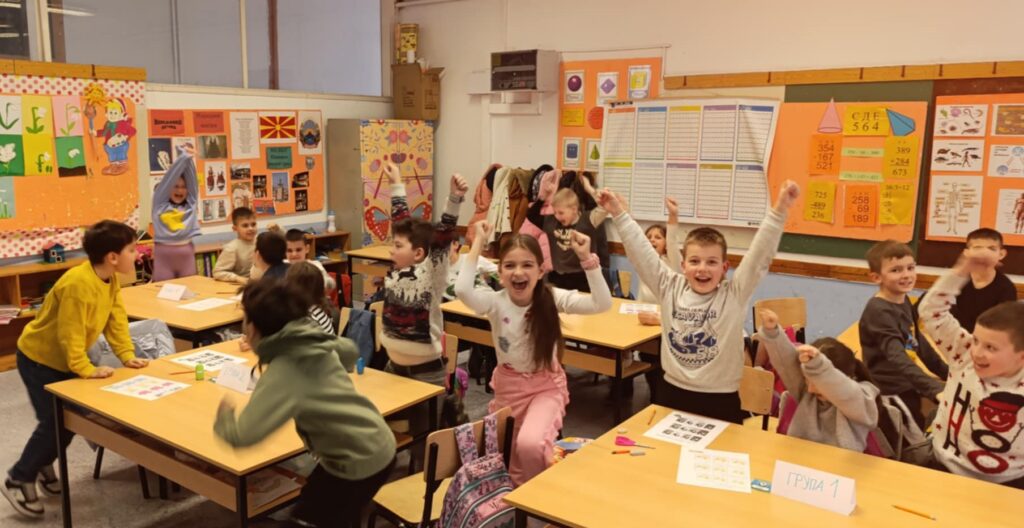

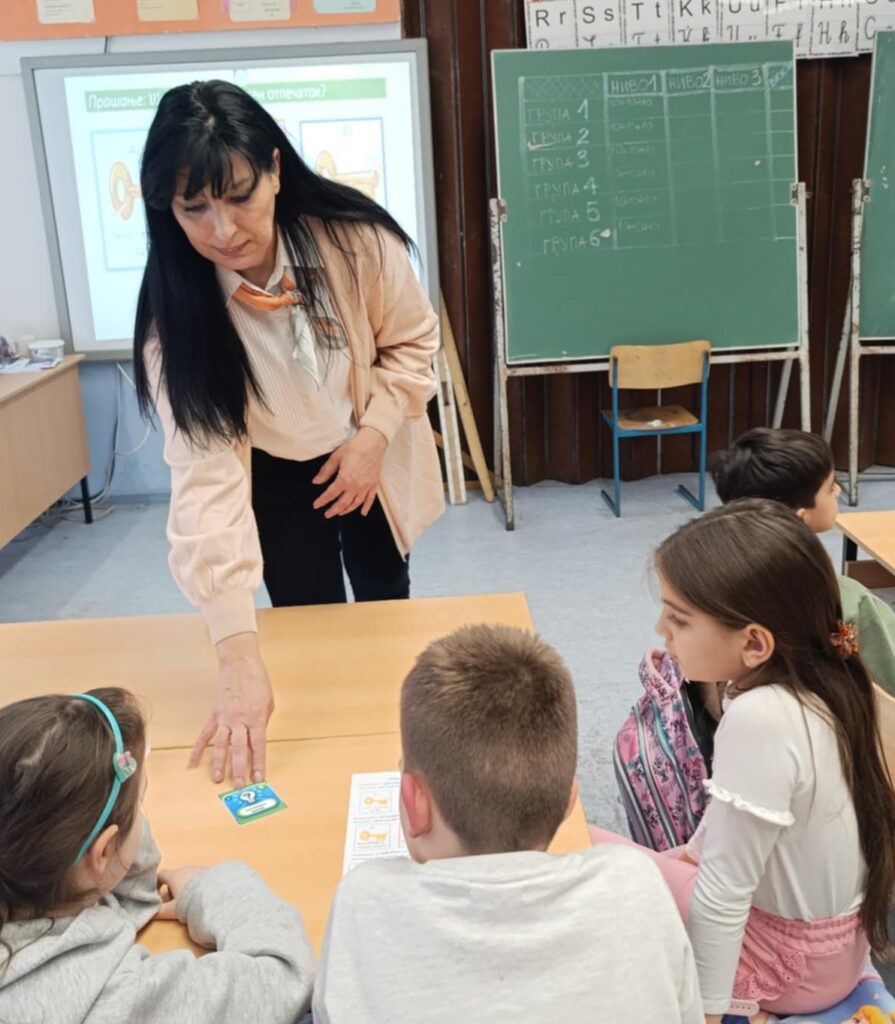
• At the “Nikola Karev” school in Probishtip, an open class was held on February 10, 2025 (Monday) with students from 5.A and 5.B grades, and on February 11, 2025 (Tuesday), an open class was held with students from 6.A and 6.B grades, led by teacher Marija Bogatinovska. Through the game “Patri and his Cyber Mission,” which originated from the SHIELD training: Practical Learning through Game Simulation to Improve Cybersecurity Skills, the students learned how to use the internet more safely. At the beginning of the class, the participants took a short pre-test to diagnose prior knowledge, followed by a test after the game to check the knowledge they gained about cybersecurity. The game is designed in three levels with a total of nine challenges that the students needed to solve. Through these challenges and puzzles, students faced real-life situations that they often encounter while using the internet. They discussed and critically thought through the challenges, successfully gaining basic knowledge and skills related to internet safety. Each group was assigned a leader who would ask for help (hints) if needed and announce the answers (codes), as well as one student who would fill out the score table. The participants were told that any group scoring more than 80 points would receive a Cyber-Hero Group Certificate. The students were engaged during the class and actively participated in their group’s work, so by the end, all groups scored at least 90 points and received a certificate as a reward. After completing both workshops, the data from the pre-test and the post-game test were analyzed. The results from the pre-test showed that very few students previously knew what a strong password was (many admitted they didn’t even remember their password), were unable to recognize real links and messages, and were not fully aware of the importance of their personal data left on the internet. The post-game test results revealed a drastic change in the students’ responses regarding creating strong passwords and recognizing real and fake links and messages. Additionally, the students became more aware that they should not remain silent about online harassment, threats, and dangers, and learned where to report suspicious content. From these two workshops, the motto emerged: SMART DEVICES should be used SMARTLY! The open classes were attended by the principal, the professional staff – the pedagogist and psychologist, as well as several colleagues – class and subject teachers. The local television station Protel also showed interest in the event, and I gave a statement for the local news.
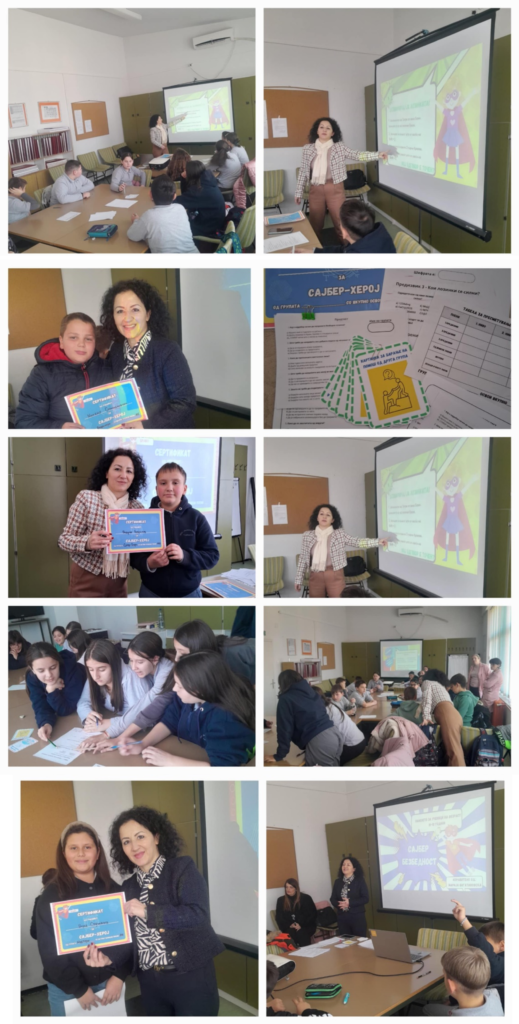
• At OOU “Aleksandar Urdarevski” in Sandevo, Skopje, teacher Nikolina Đorčevska conducted activities on February 11, 2025, in which 12 students from the 7th grade participated. The activity was organized to celebrate “Safer Internet Day” through playing an educational game on the topic of “Safe Online Shopping.” Before starting the game, the students completed an initial questionnaire link. The students filled out a pre-test and post-test before and after the game, and after one month, they will complete a test to measure long-term knowledge retention. Through informal discussions during the first semester, it was noted that some students or a member of their family had been victims of online shopping scams. The game was created with the help of AI and consists of three levels (each level has its own symbol and color). Each level of the game contains three challenges, and a correct answer to a challenge earns 10 points. There is an option to ask for help, which costs -5 points. At the end of each level, there is an additional question, and a correct answer earns 20 points. The students were divided into 4 groups of 3 students each. Each group had one computer and was able to search for the correct answer to the challenge. The students followed the game and the challenges through an interactive board. The game was played offline. The teacher kept track of the correct answers for each group and awarded HELP to the group that requested it.
• On the occasion of Computer Science Week and Safer Internet Day, students from grades VI to IX, along with teacher Risto Ristov, participated in a series of activities at OOU “Kočo Racin” in Dojran. Some of these activities included: creating knowledge quizzes in the programming language C++, creating knowledge quizzes in the programming language Scratch, and coding a Micro:bit device as a light intensity meter and a light switch based on light intensity. To mark Safer Internet Day, students completed challenges from the game “Ana’s Cyber Mission,” through which they gained knowledge and skills related to everyday internet and social media usage. They learned how to recognize fake messages and links, as well as how to identify forms of cyberbullying or manipulation.
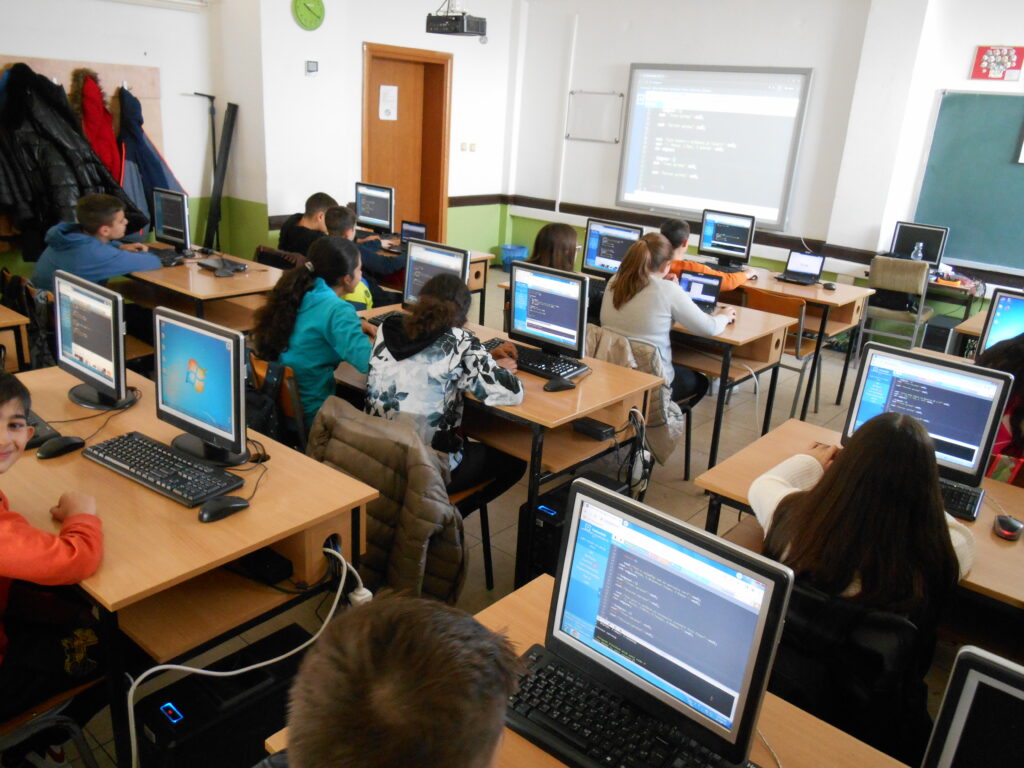
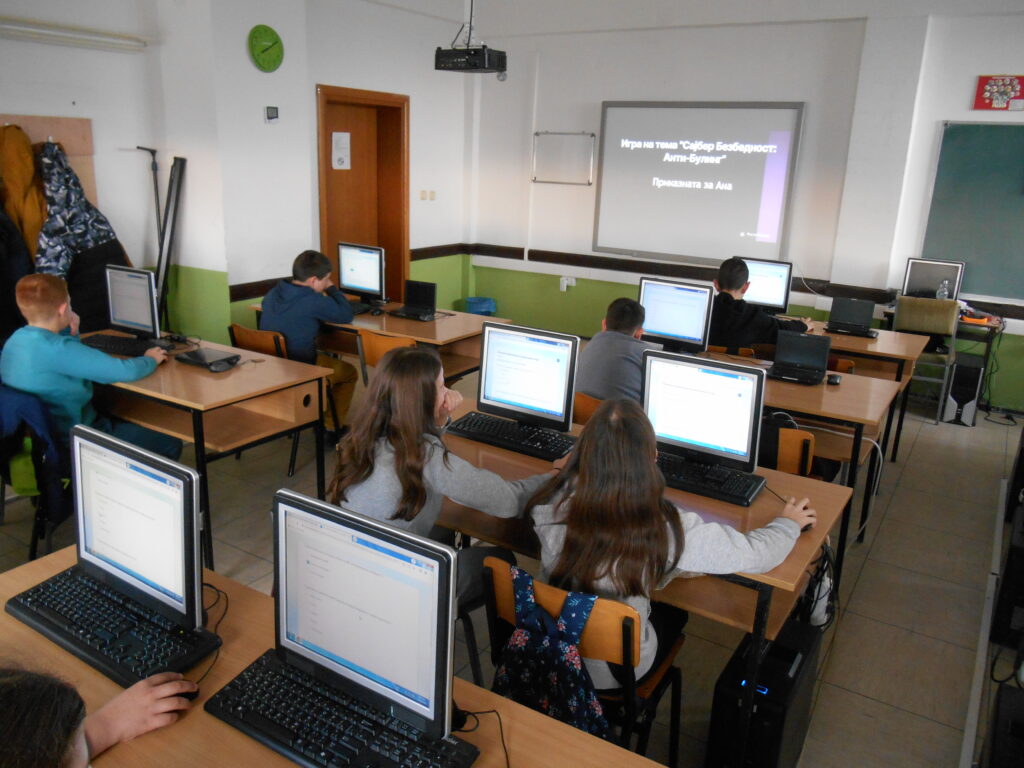

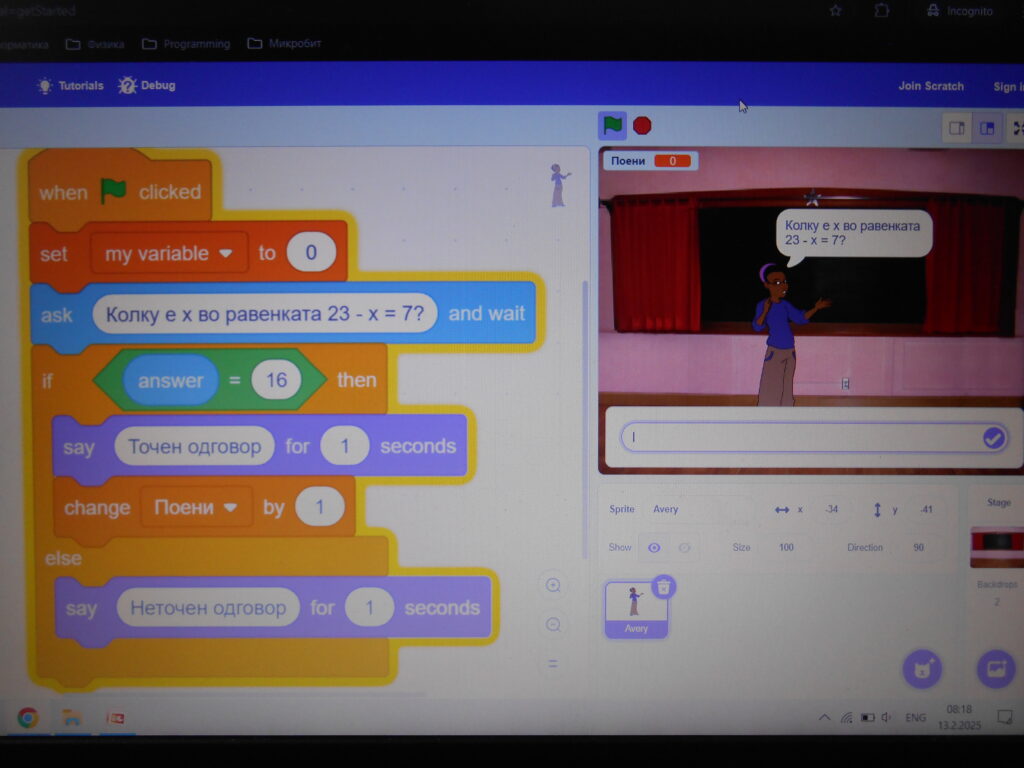
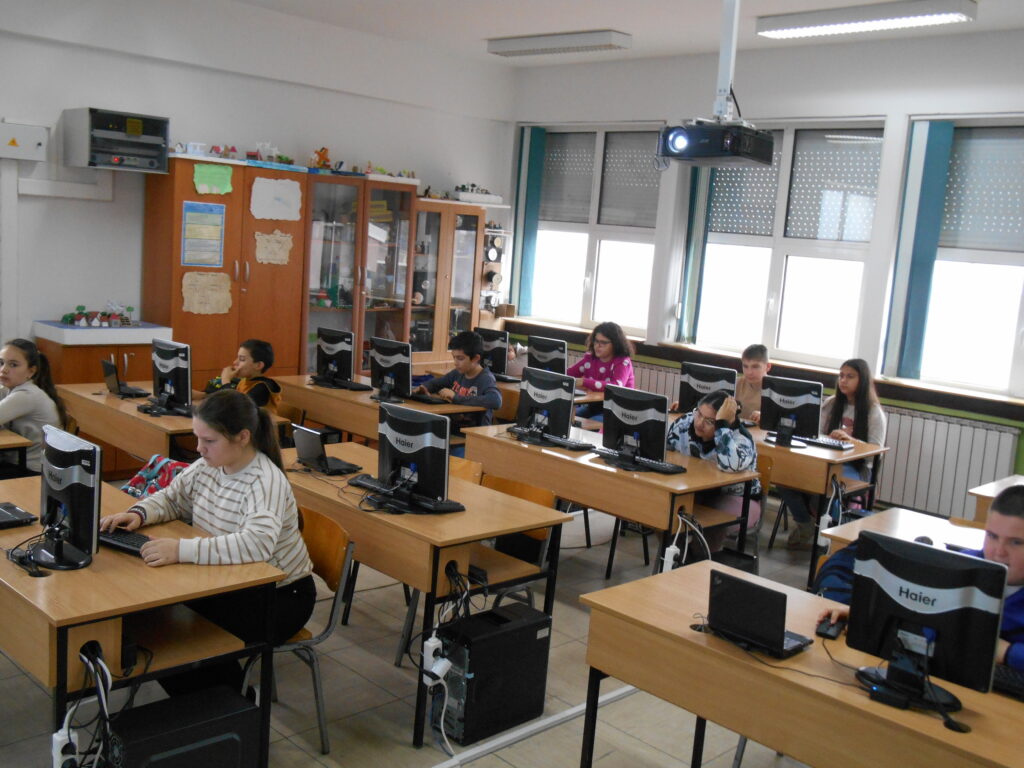
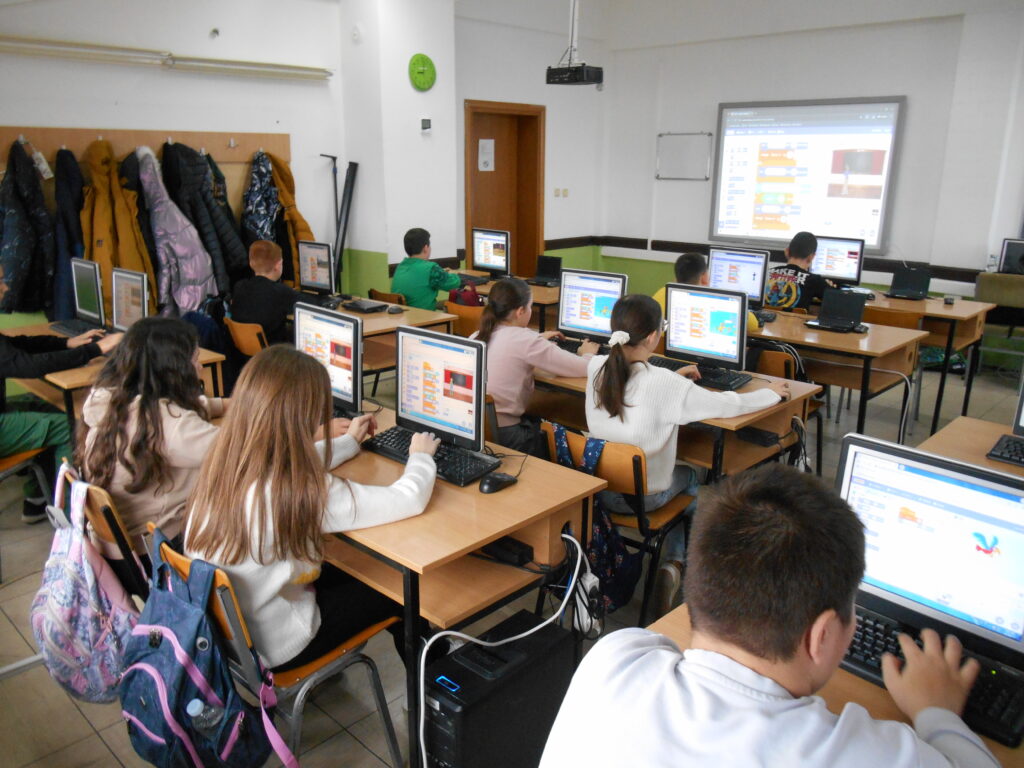

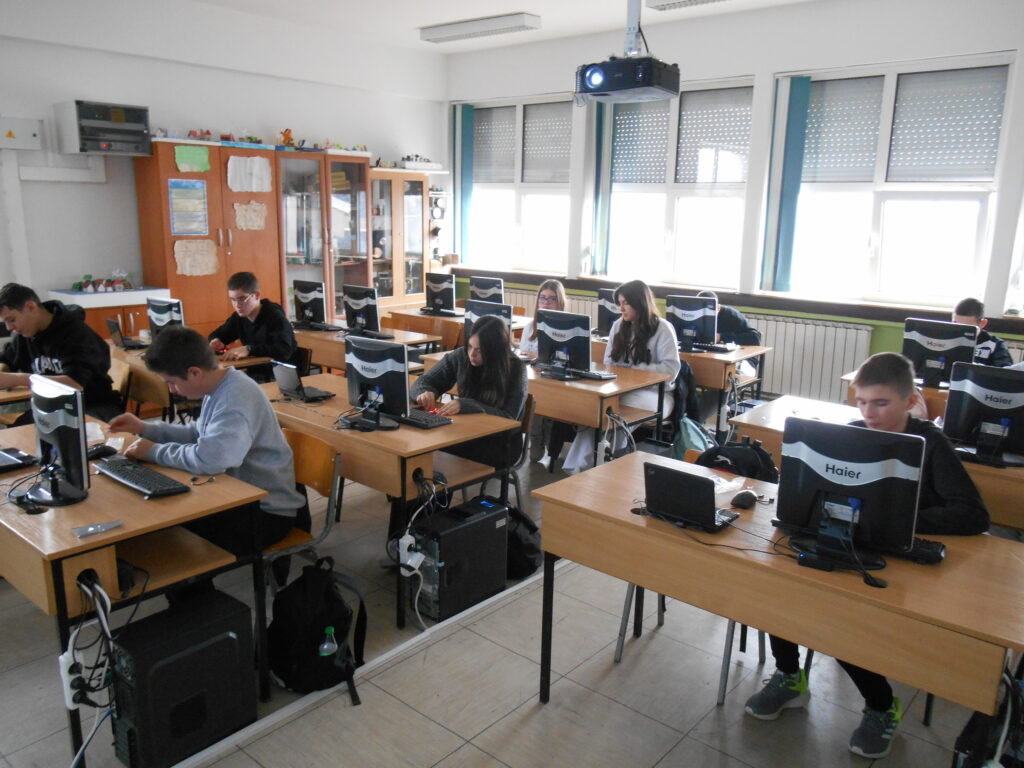
• At DSU RCSOO “Kole Nedelkovski” in Veles, teachers Natalija Ashikovska and Slavica Karbeva Stojković implemented the games “The Best Data Guardian,” “Micha and Social Networks,” and “Code Red.” The students had the opportunity to improve their digital skills in protecting personal data and responsibly using social media through discussions on various aspects of cybersecurity, with the goal of becoming responsible and aware digital citizens. The activity was carried out with the participation of students from eight classes, ranging from first to fourth year, with a total of 166 students. Although the games were created using the most common situations encountered in the digital environment, and we felt that the challenges set were familiar to the students and perhaps predictable for their age, the results from the questionnaires and developed discussions gave the impression that despite their awareness of safe practices, their real-life application was not at a satisfactory level. Before the game, the students filled out the questionnaire link and a pre-test on the game topic link. After the game, they completed the post-test on the game topic link and the questionnaire link. After one month, they will be given a long-term knowledge test, and the complete data will be placed in the appropriate folder.
